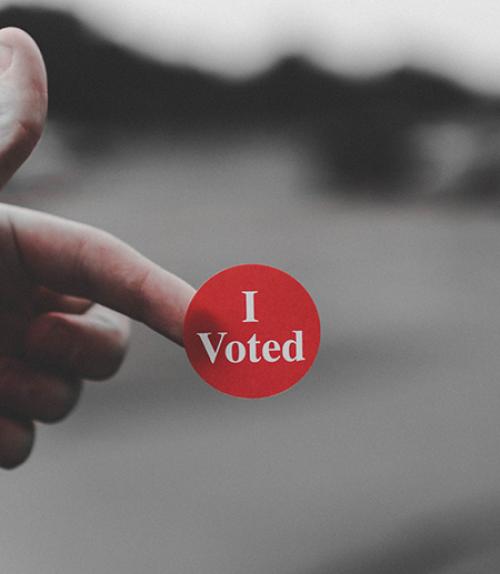Democracy is facing challenges all over the world and has been for a long time – long before COVID-19 added another layer of complication.
“This topic is one of general concern that scholars were debating even before the pandemic,” said Rachel Beatty Riedl, director of the Mario Einaudi Center for International Studies, the John S. Knight Professor of International Studies, and professor of government in the College of Arts and Sciences.
This year, Riedl said, the pandemic has increased opportunities for authoritarian leaders and partisan divides to destabilize democratic systems in the United States and abroad. A May 22 webinar hosted by the Einaudi Center focused on problems at the intersection of democracy and pandemic.
In “Democratic Challenges in the Time of COVID-19: Global Perspectives,” Cornell thought leaders who study democracy in Asia, Africa, Europe, Latin America and the United States addressed the pandemic’s short- and long-term threats to democracy.
Democracies have been deteriorating for the past 10 or 15 years in many parts of the world, said Kenneth Roberts, professor of government and director of the Einaudi Center’s Latin American Studies Program.
“In the short term,” Roberts said, “this health crisis is reinforcing those negative trend lines.”
The social distancing required to stop the spread of COVID-19, he said, ultimately harms the vibrant public and civic spaces that help democracy thrive. He said it’s important for citizens of democracies to find ways of engaging in public spaces despite restrictions on gathering and movement.
The U.S. has seen a growing partisan divide regarding this public health crisis, said Tom Pepinsky, professor of government and director of the Einaudi Center’s Southeast Asia Program.
He has been surveying Americans throughout the pandemic. Between March and May, Americans changed their public health behaviors, such as social distancing and wearing masks, in “lockstep” with their previously held political views, he said, but their differences about what to do about the crisis are widening.
“Americans are diverging in partisan terms about how we respond to the crisis,” Pepinsky said. “This is consistent with a broad trend in American politics. It is partisanship all the way down.”
The virus also is tapping into political fault lines in Europe, said Mabel Berezin, professor of sociology, where there is tension between the national power of individual countries and the transnational power of the European Union.
“Solutions as to what to do with the virus were decided on the national level, and so were the monetary costs,” Berezin said. “The irony of the virus was that the first action was to shut down borders, [and open borders are] the basic tenet of transnational Europe.”
She said COVID-19 has opened the door for extremist, extra-parliamentary groups with nationalist views, as seen in anti-lockdown demonstrations in Germany and Italy.
“If that moment were to continue,” Berezin said, “we would be witnessing the kind of instabilities that would allow more authoritarian politicians to enter the political arena.”
In democracies, however, times of challenge also bring hope for positive change, Roberts said.
“Crises worry us, but ultimately they are opportunities to further democracy, to deepen democracy, and to try to bring new voices into democracy,” he said. “If we do things right, maybe we can figure out a way to turn even this crisis in that direction.”
Roberts and Pepinsky are leading the American Democracy Collaborative, a group examining the state of democracy in the U.S., together with Suzanne Mettler, the John L. Senior Professor of American Institutions in the government department, and other scholars.






